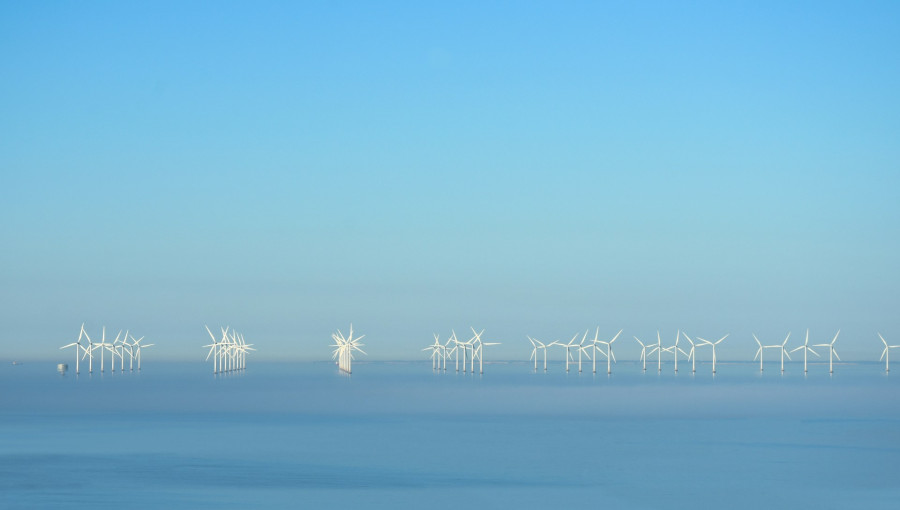Seaweed farmers have successfully completed the inaugural harvest at a pioneering seaweed farm located amidst wind turbines in the North Sea, off the coast of Scheveningen, Netherlands. This innovative initiative, named North Sea Farm 1, is the first large-scale seaweed farming operation integrated within an offshore wind farm, bolstered by a €2 million investment from Amazon’s Right Now Climate Fund. The project’s aim is to explore the potential of farming seaweed in ocean settings efficiently while addressing space constraints typical in busy maritime zones.
The five-hectare North Sea Farm 1 operates alongside the Hollandse Kust Zuid wind farm, utilizing the existing offshore infrastructure to grow seaweed without competing for additional ocean space. Harvesting is undertaken by vessels that carefully navigate the area, collecting seaweed from nets anchored to the ocean floor. This method not only utilizes the ocean space effectively but also leverages the mutual benefits of renewable energy generation alongside sustainable food production. Seaweed, which grows rapidly and absorbs carbon dioxide from seawater, poses a dual advantage: providing a crop while simultaneously helping mitigate climate change.
According to Eva Faict, the country manager for Amazon in the Netherlands and Belgium, the successful harvest marks a pivotal milestone in demonstrating that seaweed farming can be a viable business model when paired with offshore wind infrastructure. The initiative is also poised to yield critical insights for scientists examining the efficacy of seaweed farms in sequestering atmospheric carbon and influencing marine biodiversity.
Environmentalists from three research organizations, including Plymouth Marine Laboratory and Deltares, are actively monitoring the farm’s impacts on the surrounding marine environment. They are investigating how carbon transitions from seawater to seaweed and assessing the farm’s overall effect on the local ecosystem. This research is essential, given the pressing global need for effective climate solutions. Early findings from North Sea Farm 1 may pave the way for larger-scale seaweed farming, potentially shaping future offshore ventures that merge energy production with environmental restoration.
As countries worldwide seek innovative ways to meet climate goals, the North Sea’s innovative model illustrates how seaweed farming can complement offshore wind energy in combating carbon emissions. The project positions the Netherlands as a leader in maximizing offshore resources, with prospective benefits that may span beyond national borders, allowing similar enterprises to emerge globally. By successfully integrating seaweed cultivation into wind farm operations, there is an opportunity to redefine offshore platforms’ utility, fostering a new sector that provides both renewable energy and sustainable food sources.
https://happyeconews.com/netherlands-wind-farm-seaweed-harvest

